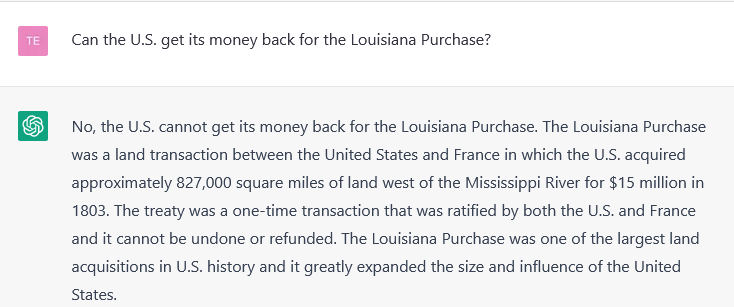Research is not always exciting! [Maybe I should have left my typo – ‘exiting’ research is what might happen. ![]() ]
]
That’s like saying a computer makes a decision because writing instantly appears on our screen, as if the letters appearing on the screen are the only process that is operating. There’s a lot of brain activity going on below our consciousness, and it appears to be heavily involved in decision making. What we experience as conscious thought is just the tip of the iceberg.
Not at all like that, but I’m really not sure if you see it that way though.
It’s also possible my experience of acting is different from your own.
In neurological studies there aren’t massive outliers, so I doubt your neurobiology is that different from mine. I doubt you are the only human being who lacks a subconscious.
I’m more or less aware of my subconscious action
So we can conclude mouse cardiomyocytes were controlling your subconscious. ![]()
Sad, but true. ![]()
And quantum fluctuations my thinking too
The interaction can be mind numbing
Does a Carbon-14 atom choose to decay?
All I can tell in this regard is what I am capable of doing
And the cause of the universe may or may not be aware of what it is doing here
Only half its life? ![]()
After which it ascends into the atmosphere as Nitrogen-14. ![]()
I cannot remember if you ruled out the possibility of quantum indeterminacy affecting mental states or vice versa.
These questions about determinism and quantum physics relate to the idea of True Random Number Generators (TRNGs). ChatGPT probably uses random numbers in some way that it appears to be making choices. The thing is that all random number generators in computer software are Pseudo-Random Number Generators (PRNGs). They rely on a “seed”, which is a really hard-to-predict small piece of data (often a combination of a high-precision clock, so-called “one-way” functions, or other data), then generate a stream of random numbers with a hard-to-reverse algorithm.
But there are proposals to build TRNGs from quantum computers via qubits, which rely on the apparently fundamentally random nature of quantum mechanics.
Mind-boggling stuff, this free will vs. determinism ![]() .
.
It’s all down hill from here ![]()
Imagine what happens when a technological singularity coincides with a philosophical singularity
What is a technological singularity?
A technological singularity is a hypothetical future event in which artificial intelligence surpasses human intelligence and control, leading to an exponential increase in technological progress. This results in a situation where technological development becomes uncontrollable and unpredictable, and humans are no longer capable of fully understanding or influencing it. The term was first coined by mathematician and computer scientist John von Neumann, and popularized by science fiction writer Vernor Vinge.
What is a philosophical singularity?
A philosophical singularity is a concept similar to the technological singularity, but it refers to a theoretical future state of humanity in which traditional ways of thinking, values, and beliefs are fundamentally altered. This could be due to a number of factors, such as a major breakthrough in philosophy, the emergence of a new consciousness, or a significant change in human perception and understanding of the world. The idea of a philosophical singularity suggests that humanity would evolve beyond its current form and enter a new era of existence, potentially transforming what it means to be human. However, this concept is still largely speculative and remains a topic of debate and discussion in philosophy and futurism.
Who has written about this philosophical singularity?
The concept of a philosophical singularity has been discussed by a number of philosophers, futurists, and writers. Some of the notable figures who have written about this topic include:
Ray Kurzweil, author of “The Singularity is Near” and a leading advocate for the technological singularity, who argues that humanity is on the brink of a profound transformation.
David Pearce, a transhumanist philosopher and founder of the Hedonistic Imperative, who has written about the potential for a future “pain-free” world and the ethics of creating a utopian society.
Nick Bostrom, philosopher and founder of the Future of Humanity Institute at the University of Oxford, who has written extensively about the potential risks and benefits of advanced artificial intelligence.
Jaron Lanier, computer scientist, musician, and author of “Who Owns the Future?”, who has written about the social and ethical implications of technology and the need for a new philosophy of digital humanity.
These and other thinkers have contributed to the ongoing debate and discourse around the philosophical singularity and its potential impact on humanity.
